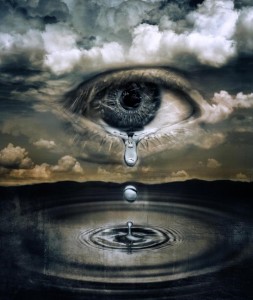 The greatest plague of the 21st century is not AIDS, nor cancer, nor the H1N1 flu, but something that affects much more people in ways we can barely start to understand: depression. Reportedly one in ten Americans suffers from one or the other forms of this malady. The rates of anti-depressant usage in the United States are just as worrisome. A recent poll unveils that one in eight Americans is using them. Prozac, Zyprexa, Cymbalta are not strange alien names anymore, but familiar encounters in almost every American household. Even children approach the usage rates of adults. These are very high and paradoxical numbers in a country where all are free to enjoy “life, liberty and the pursuit of happiness.”… Continue reading
The greatest plague of the 21st century is not AIDS, nor cancer, nor the H1N1 flu, but something that affects much more people in ways we can barely start to understand: depression. Reportedly one in ten Americans suffers from one or the other forms of this malady. The rates of anti-depressant usage in the United States are just as worrisome. A recent poll unveils that one in eight Americans is using them. Prozac, Zyprexa, Cymbalta are not strange alien names anymore, but familiar encounters in almost every American household. Even children approach the usage rates of adults. These are very high and paradoxical numbers in a country where all are free to enjoy “life, liberty and the pursuit of happiness.”… Continue reading
The chronicle of a social death foretold
 A friend of mine died yesterday. He made a public announcement about it and then he committed suicide. Not physically, spare the thought, but for all practical purposes he is now dead to the world. How did it happen? Well, he officially announced that he is quitting Facebook for good, and, with this, his life has ended; no one will even remember that he ever was; he has passed into the World Wide Web oblivion.
A friend of mine died yesterday. He made a public announcement about it and then he committed suicide. Not physically, spare the thought, but for all practical purposes he is now dead to the world. How did it happen? Well, he officially announced that he is quitting Facebook for good, and, with this, his life has ended; no one will even remember that he ever was; he has passed into the World Wide Web oblivion.
He is not the only one to end like this. Today, if you do not have an electronic presence, you are a nobody to the world. If all your friends do not know what time you woke up and what you ate for breakfast… Continue reading
Curing the new depression era
For what has man from all his labor, and from the troubling of his heart, in which he has labored under the sun? For all his days are sorrows, and his labor sadness; yea, his heart does not take rest in the night.
(Ecc 2:22-23)
 North European airports are still fighting with the giant cloud of ashes following the eruption of the unpronounceable Eyjafjallajökull volcano in Iceland. The aviation havoc reaches the entire world as the global flight network goes unbalanced with several of its major airports closed. But this is not the first time it happened. Iceland was the theater of another devastating eruption in 1783 when the Laki volcano… Continue reading
North European airports are still fighting with the giant cloud of ashes following the eruption of the unpronounceable Eyjafjallajökull volcano in Iceland. The aviation havoc reaches the entire world as the global flight network goes unbalanced with several of its major airports closed. But this is not the first time it happened. Iceland was the theater of another devastating eruption in 1783 when the Laki volcano… Continue reading
The Orthodox Nativity Fast Can Help Prevent Holiday Blues and Christmas Depression – Lisa C. DeLuca
Much of the post-holiday blues and Christmas depression that occur in the United States may have something to do with the way Americans celebrate Christmas. The Orthodox Nativity fast may be the remedy many people need.
When people are suffering in their lives with things like divorce or other losses, financial stress, aging or illness; the sudden onset of pre-Christmas cheeriness may leave them feeling even more isolated and deprived, because the rest of world is portrayed as happy and fulfilled in stark contrast to how they feel.
Others who do embrace pre-holiday celebrations often feel let down and weighed down by food and debt shortly after Christmas day. The novelty of the new material things wears off quickly, friends and family go home, and people may be left feeling blue. This is the feeling known as post-Christmas let-down.
The Orthodox way of celebrating Christmas can yield completely different results. Continue reading
